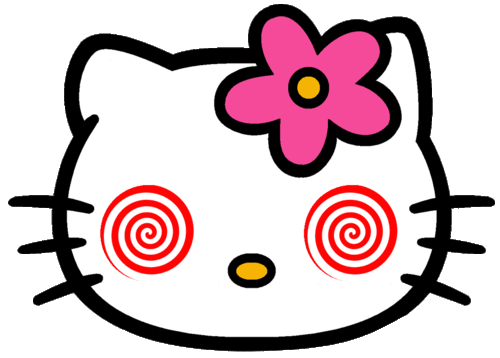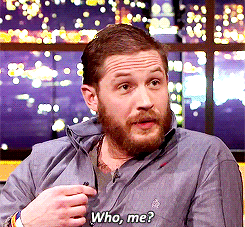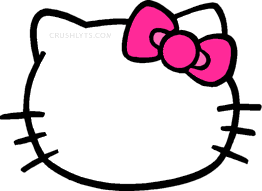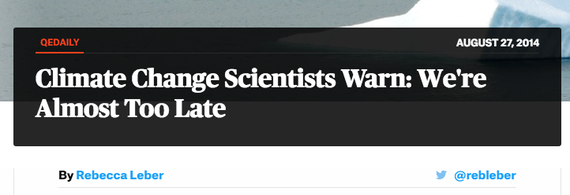On August 26, the world was let in on what would appear to be one of the biggest bombshells in cartoon history: Hello Kitty, née Kitty White, was pronounced not-cat. At 40 years young, this positioned her as the oldest third-grader in human history.
Then, in another tangle to the yarn, Sanrio, the company behind the now not-cat, explained that saying she was not a cat was "going too far," and that she is, "a personification of a cat."
As a standalone announcement, the first revelation is something of an annoying redundancy: of course Hello Kitty's not a cat -- she's not even really a "she" -- she's a cartoon. With the rollout of Sanrio's follow-up, though, we're faced with a morsel of such miraculous banality that we're left to scratch our heads over the ensuing media spectacle. After all, what is an animal cartoon (or any cartoon) if not a personification?
I won't waste time pointing out the ways it's just a media ploy, because, by 2014, we're all jaded enough to know that intuitively. That it became the "it" fluff story last week isn't even worth discussing; this sort of thing occurs with regularity. And even that -- that we have a kerfuffle on our hands that is based on what amounts, at best, to a tautology, and this happens with regularity -- is not what's actually interesting about this whole mess. We are.
Our acceptance of this phenomenon as commonplace, without any meaningful expression of discontent over being forced to sift from among the deluge of Hello Kitty content riddling major news outlets to find actual news -- now that's worth taking a moment to discuss.
I've written elsewhere about metamodernism, the emerging cultural dominant that has taken rise alongside the Internet. Before you jump to that tab of Ice Bucket Challenge fails or the leaked JLaw pics from The Fappening, follow me briefly. Despite its hefty name, you needn't think of metamodernism as an esoteric academic concept; it's all around us. Sent selfies to your biffles over Snapchat? Metamodernism. Chuckled at Clickhole's clickbait send-ups? That too. In music, there's Childish Gambino and Drake; in TV, Parks and Recreation, Nathan for You, and Wilfred all showcase metamodern tendencies. Many of us use "literally" to describe something figurative without knowing the difference between the two; that's also a product of metamodernism. I could go on. Whether or not we acknowledge it, we're swimming in the metamodern every day.
There's not enough space here to fully flesh out the idea, which means I'll inevitably leave stuff out, but one easy way to understand metamodernism in a historical context is to imagine a cycle of movement in culture that is made up of three revolving "forces": construction, deconstruction, and reconstruction (akin to Hegel's dialectic triad of thesis, antithesis, and synthesis). In the simplest sense, metamodernism is the one interested in reconstruction, preceded by the aforementioned two. Working backwards, postmodernism embodied deconstruction. In the wake of the world wars, and amid the hazy portent of the Cold War, we were too cool, too cynical for the earnestness it requires to believe enough in a monument to construct one. We knew too much; we couldn't believe it was worth creating something that we knew wouldn't last. "Hipster" irony has been a big topic of discussion in the past couple decades; that's a mainstay of postmodernism and the deconstructive impulse.
Prior to that, Modernism, the "construction" end of the equation, was situated amid the turbulence of the first several decades of the twentieth century. The world had never felt more immense; new technologies such as the car and the airplane (and the growing prevalence of photography and radio) granted us new kinds of awareness about our world: a visceral sense of how different and varied our experiences were and could be. In response, we cherished ideas that carried universal weight, and consequently formed bridges among our many localized environments.
Again, these broad generalizations are just that. I detour here because it's vital to frame our moment, even in the loosest terms, in order to best understand the happenings around us, that, when coupled with our responses to them, come to make up what we call, "culture."
Enter: Kitty White, the Brit.
Where the 5 o'clock news of yore bottled up what was deemed the most relevant for the hour based on local markets, there are no such constraints on the Internet -- quite the opposite, in fact. The whirlwind of crises taking place all over the world is ever visible to us, even when we try to hide. There was a time not too long ago when we were still able to maintain a haven of ignorance with enough effort; we're afforded no such luxury now. And the technologies that facilitate this pervasiveness of information improve by the day.
What can we do with the amorphous blend of sense and nonsense we're constantly parsing? We often lack the time and resources necessary to quickly and effectively evaluate this glut of media that is thrust upon us. Advertising exacerbates this situation; with the hard stats that web traffic offers, misleading or downright manipulative titles/tags claw for our attention, even when they provide no actual value upon arrival.
Our willingness to engage with stories altogether lacking in nuance or depth is indicative of the resulting state; we're so overwhelmed that we'll take the easy fix (Hello Kitty-gate), the fun snippet to pass along over social media. Studies have shown that mediated structures, the Internet maybe the greatest offender in this regard, position us at a level of remove that can differ wildly from the interpersonal communication that takes place in the physical world. Computers are where we check email, play video games, and look at pornography. How could this not have an impact on our relationship with news when it's transmitted over the very same medium? As such, we put even situations with dire circumstances on the same ground as something like the announcement that Hello Kitty is a personification of a cat. By way of comparison, on the same day we found out Hello Kitty was a not-cat-kind-of, major news sources worldwide circulated the news that we're nearing inevitable crisis even faster than expected, that if we don't act we will likely ruin our way of life on this planet:
Each generation has battles they must fight and demons to face. In metamodern America, we're not so bitter that we don't care -- we've had the time and resources to think things through -- and en masse, we're more accepting than any generation before us. But we must re-learn how to care enough to act, to surmount the level of remove we inherited before we realized it was happening. This begins with retraining ourselves to feel our discontent, learn its contours -- including the ones that really hurt -- and share those with others. We no longer have time for fear and apathy; the problems before us are too great. We can't just appear to be interested in having important conversations; we must be interested in actually having them. This means stepping out of the Warholian "like" ("favorite," "heart," et al.) dystopia on social media.
What you do on the Internet is your personal business, but I promise you it's not private, and the decisions you make here bolster the worst possible breed of feedback loop: that of the market-driven lowest common denominator. When you link to anything related to Hello Kitty, you verify the profitability of that particular breed of nonsense. If news sources require the money of advertisers to stay in business, then they'll continue to put forth what's getting clicks. There's a reason Facebook never implemented the long-rumored dislike button; it would chase away advertisers. We can't change the whole system at once, but we can protest in small ways. It starts by withholding our participation: not sharing, linking, liking, whatehaveyou. The next step is making noise, expressing not whether or not we (dis)like something, but why, and why it's important to talk about. In doing so, we encourage others to do the same. Over time, this is how we change our systems. Surely there are more ideas, and better ones. Got any to share? We have to start making the right kind of noise.




